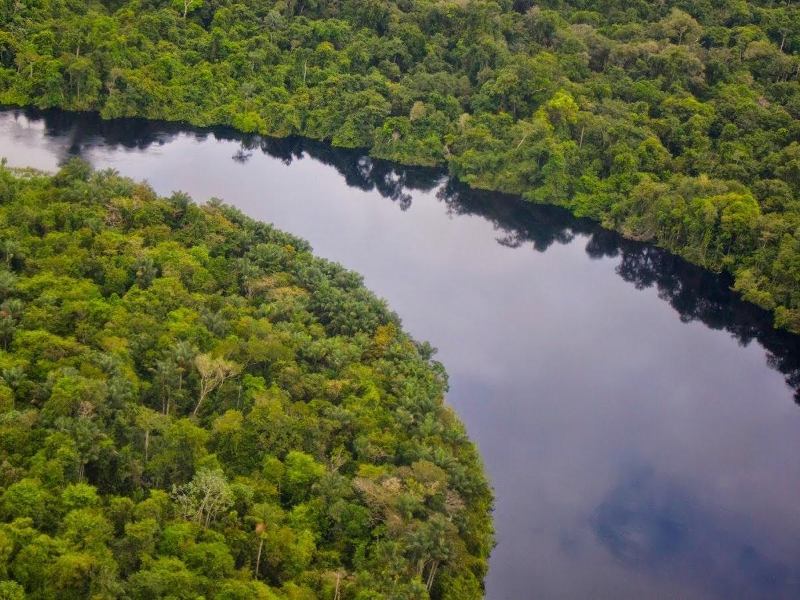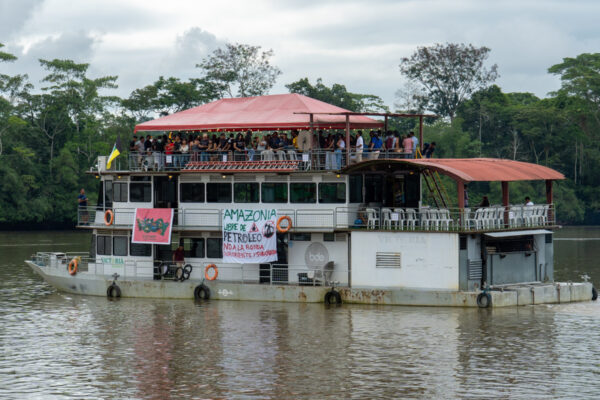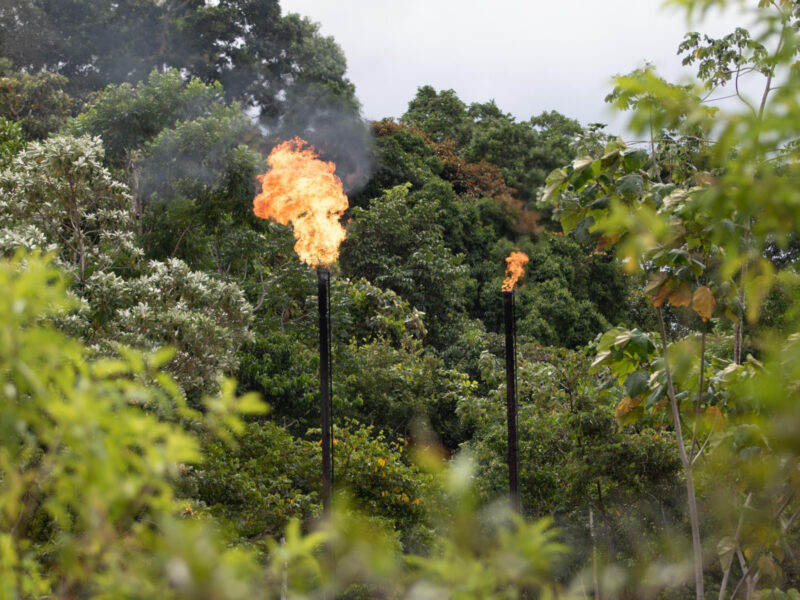2019 was a bad year for the Amazon – and, due to its role as the world’s carbon sink, for global climate as a whole. Massive fires, fueled by global supply chains, charred 2.2 million acres of tropical rainforest, an incalculable loss.
Now, if fossil fuel interests have their way, 2020 could be ever worse. According to a new report from the non-profit Amazon Watch, oil and gas exploration companies are pushing to expand extraction in the western Amazon, which includes parts of Colombia, Ecuador and Peru. Backing them are some familiar names: Citigroup, JPMorgan Chase, Goldman Sachs, HSBC and BlackRock, five of the largest financial institutions conducting business in the United States.
Fossil fuel companies keep targeting the Amazon
“The Amazon rainforest is crucial to climate stability, and oil drilling expansion is one of the greatest threats to it,” said Moira Birss, campaign director of the finance program at Amazon Watch to TriplePundit.
According to Birss, these financiers have made tens of billions of dollars available for oil and gas companies operating in this region. This is primarily done through their providing debt and equity financing.
This is, sadly, nothing new. There is a strong direct link between corporate brands, financial institutions, and deforestation in the Amazon. Amazon Watch previously named BlackRock, the world’s largest investment firm, as a leading investor in Brazilian agribusinesses connected to last year’s fires. Other companies implicated in illegal deforestation in South America are Cargill, which have been slammed by many NGOs including Mighty Earth, as well as agribusiness companies Archer Daniels Midland and Bunge.
More threats to human rights and biodiversity
The report details the risks to climate change, biodiversity, and Indigenous rights if planned oil and gas development in the western Amazon moves forward. It also explores the potential impact for the Taromenane and Taegeri, two Indigenous peoples living in voluntary isolation in the Ecuadorian Amazon. Amazon Watch fears they are at risk for extinction due to the pressure of oil expansion, which could also introduce them to diseases to which they lack immunity, including COVID-19.
“If they disappear, so will the linguistic and cultural knowledge they have developed over millennia,” said Birss.
In nearly every way, protecting this vast forest, its people, and other tropical, biodiverse regions, is a no-brainer. The massive collection of ecosystems alone absorbs 2 billion tons of CO2 per year, equal to five percent of global emissions. This is despite it only covering 4 percent of the Earth’s surface. It’s also a unique biodiversity hotspot, with one third of the planet’s plant and animal species.
Time to re-examine those sustainability commitments
The irony is that the financial institutions that Amazon Watch called out all say they have sustainability or environmental commitments. Citigroup has a social and environmental risk management policy that states that they will “evaluate climate risk in our portfolio.” JP Morgan Chase has an environmental and social policy framework that explicitly states their commitment to protecting the environment and Indigenous peoples rights. And BlackRock got a lot of attention for their new, more aggressive stand on climate action announced earlier this year.
Yet, when it comes to the Amazon, these commitments haven’t stopped them from investing, even if indirectly, in projects with obvious environmental, social and climate risks.
“We have yet to receive a substantive response to our findings, nor a response to our open request for a plan from each financier to phase out its financing of oil companies attempting to expand operations in the Amazon,” said Birss.
Amazon Watch wants the finance industry to make a clean break with deforestation and fossil fuels. They have launched a new campaign called Stop the Money Pipeline, calling for a radical shift in the finance industry away from fossil fuels and deforestation and towards a just, clean-energy transition. They’re also calling for shareholders or investors in the financial institutions to be more active in demanding accountability.
“If you are a customer or client…demand that the financial institutions with which you have relationships fully divest from Amazon crude oil,” said Birss. If they don’t act? Divest.
The reality is that financial institutions need to be proactive, not merely reactive, if they are to be part of the solution. If they can’t even stop investing in the destruction of the world’s most important landscape, the Amazon, something is terribly wrong.














